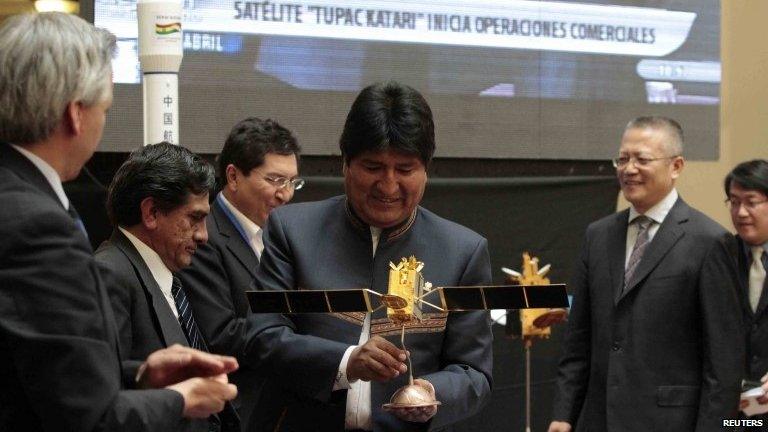Bolivia congress clock altered to turn anti-clockwise
- Published
- comments
The Congress building is located in the historic centre of La Paz
The clock on the facade of the building housing the Bolivian congress in La Paz has been reversed.
Its hands turn left and the numbers have been inverted to go from one to 12 anti-clockwise.
Bolivian Foreign Minister David Choquehuanca dubbed it the "clock of the south".
He said the change had been made to get Bolivians to treasure their heritage and show them that they could question established norms and think creatively.
Creative approach
"Who says that the clock always has to turn one way? Why do we always have to obey? Why can't we be creative?", he asked at a news conference on Tuesday.
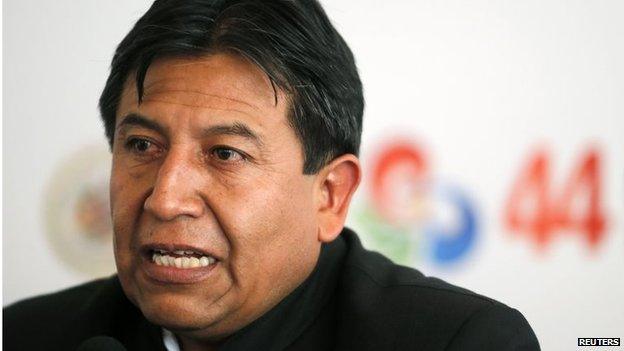
Foreign Minister David Choquehuanca says he has been wearing a "clock of the south" wristwatch for a while
"We don't have to complicate matters, we just have to be conscious that we live in the south, not in the north," Mr Choquehuanca added.
He also told reporters that Bolivia had presented foreign delegations attending the recent G77 summit in the Bolivian city of Santa Cruz with left-turning desk clocks.
The clock given to the delegations is shaped like the map of Bolivia and includes a disputed territory which is currently located in Chile but which Bolivia claims as its own.
'Bad idea'
Asked if Bolivia's left-wing government would try to extend the use of the reversed clocks, Mr Choquehuanca said that they should not be imposed on anyone.
"If you want to buy a clock of the south, do so, but if you want to continue using a clock of the north, you can continue doing so," he said.
The new clock received a mixed reaction from La Paz's residents.
Shoe shiner Franz Galarza, who works in Murillo Square where the legislative building stands, told Efe news agency that the new clock was "a bad idea".
"If they want to send out the message that the country is heading in another direction, then they'll have to make that clear, because all the people who are walking past Murillo Square say they thought it was an error, a mistake."
Under President Evo Morales, an indigenous Aymara, Bolivia has passed a number of measures aimed at boosting its indigenous heritage.
The country has, for example, adopted the whipala, a rainbow-coloured indigenous flag, which is now flown alongside the traditional red, yellow and green banner used since the 19th Century.
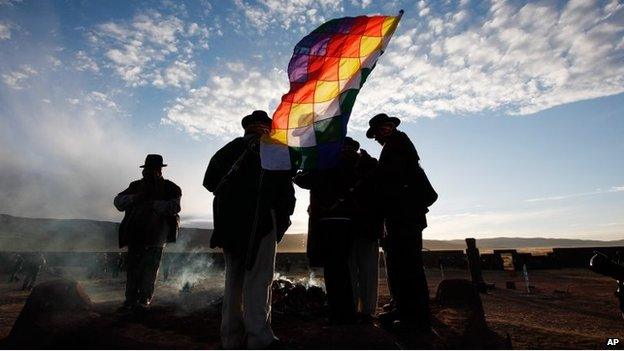
The whipala flag has become a national symbol recognised under the constitution
- Published19 May 2014
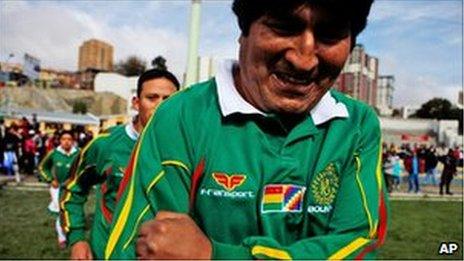
- Published16 April 2014
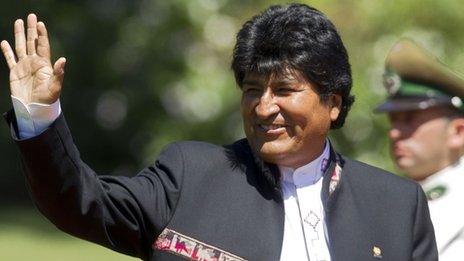
- Published2 April 2014
